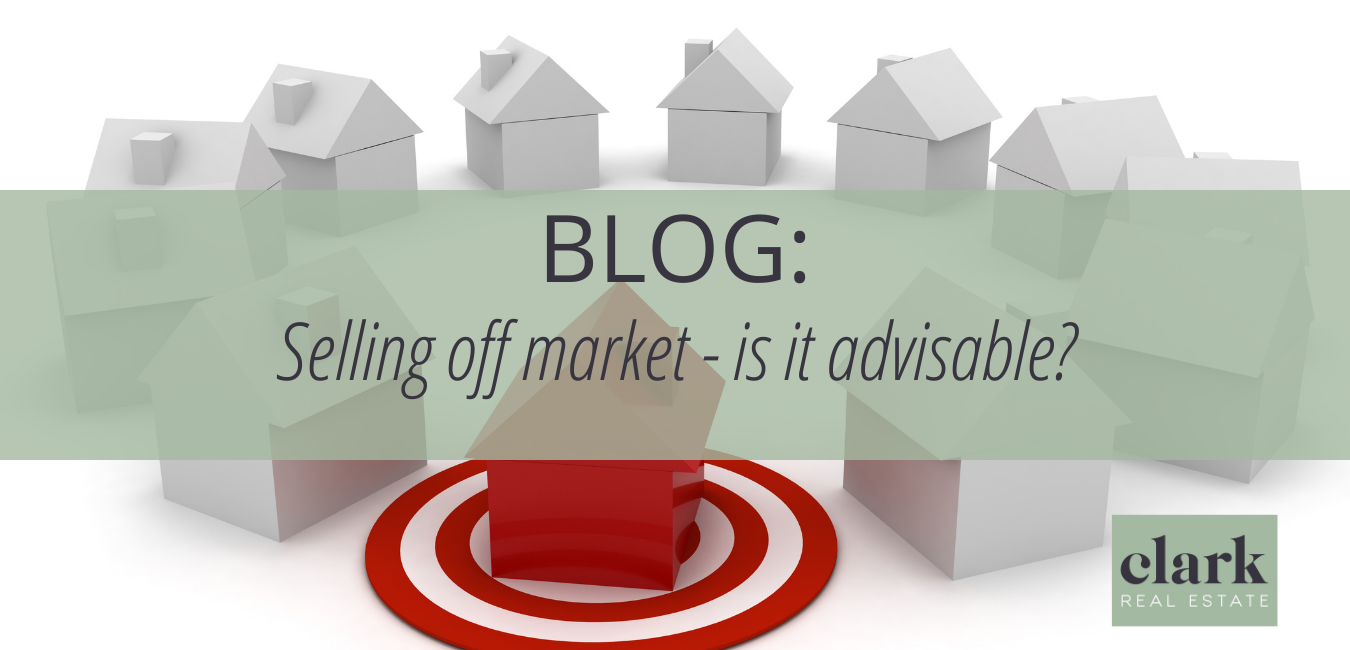
Sales that are not advertised publicly occur in both rising and falling markets, but are particularly common when markets are rising.
In exploring the merits of selling property off-market, it is important to look at this type of sale in the context of different market conditions.
Rising (strong) markets
Strong markets are marked by low supply and excess demand. Essentially, this means there are more active buyers than sellers. The main effect of this situation is that excess buyers drive prices higher by outbidding each other for limited housing stock.
When the market is like this, there can be advantages for both buyers and sellers in an off-market sale. Firstly, an off-market sale can save the seller both the effort and the cost of a full sales campaign. Secondly, the buyer secures the home they desire without having to compete with multiple buyers.
One drawback from a seller’s point of view is that the competitive nature of an ‘on the market’ sale is largely absent when selling off-market. This means the major question facing vendors who consider selling off-market is whether they could achieve a better result on the open market. Selling, off-market for a good price in a boom is relatively easy. In a buoyant market, however, the difference between a good price and a great price can be tens of thousands of dollars, if not hundreds of thousands.
Falling markets
Selling off-market in a weak market can be a great way to go. In a falling market, the supply of housing stock generally exceeds the number of active buyers. Knocking back a good offer in favour of going to the open market can be a risk not worth taking in falling markets.
During the global financial crisis of 2008, a number of prized homes were listed quietly with agents off-market. The owners wanted (or needed) to offload the asset but did not want to let friends, neighbours and the open market know their home was for sale.
Things to consider when setting up an off-market sale
If you want to sell off-market, there are several options open and a number of things to consider.
In a strong market-listing with an agent
The simplest method is to list with an agent while not allowing them to advertise your home. In pre-internet days, when agents were sloppy with their data management, this might have been more difficult to execute.
Back then, agents chose to hit every home seller for the cost of a full advertising campaign. As the old saying goes, they were effectively ‘advertising this week’s listings to next week’s buyers, using the seller’s money’. Despite constituting a complete waste of the advertising budget, this policy was brushed off by agents as nothing to worry about, because it was paid for by the vendor.
Today, good agents make a quick and thorough search of their buyer database to find pre-qualified ‘select’ candidates who might be interested in buying your home.
There are a number of agents across the country who actively promote their skills at quiet, off-market or ‘by stealth’ sales. The best agents are those who can produce lists of qualified buyers on demand. An agent who cannot produce a list of potential pre-qualified buyers before being granted a listing should not be given that listing.
In a strong market-not selling through an agent
Sellers who have a low opinion of estate agents can fall into a trap in which their main objective is to avoid paying a commission. Selling with a competent agent will, more often than not, achieve a higher net price than selling without one.
In a strong market, prices can easily exceed all expectations by 5 or 10 per cent if the agent has abundant competition at hand.
In a strong market, buyers who are unwilling to compete against other buyers often resort to prospecting for a home. Whether by word of mouth, social media or leaflet drops, a determined buyer will sniff out someone wanting to sell off market. The sheer frustration of constantly losing bidding wars in auctions and receiving poor service from agents leads them down this path. A private buyer will usually promise a win/win solution for both the buyer and seller because the agent misses out on a commission! ‘We can both save,’ they will claim. Be careful of this claim – it has some traps.
A seller should never enter into an off-market contract with a buyer without having a very clear idea of the current market price for their property. The seller would be well advised to get a paid, independent, confidential valuation from a registered valuer before beginning negotiations. Never show this to the buyer or an estate agent. Once you have the valuation report, call in an agent you trust. Ask them what they believe the property could sell for in the current market.
Remember that a valuer’s price reflects what, in their opinion, the property would definitely sell for, today. An agent will give you a price the property could sell for, if given the time to run a good sales campaign. There may be a difference between those two prices.
If the agent promises more than the private buyer offers you, ask the agent if they would be prepared to guarantee a higher price than the buyer has offered. You could say something like, ‘As we have been offered $1 million privately, to justify listing with an agent we would need to get $1.025 million or more. Are you prepared to agree to no commission below $1.025 million?’
This question will quickly flush out the agent’s level of confidence in the price they promise you.
In a weak market
One of the most justifiable circumstances for an off-market sale is where there is an expensive, prestige or unique home for sale in a slow, flat market. In real estate terms, ‘unique’ is defined as ‘priceless’ by emotional property owners. As you have discovered, unique homes often require unique purchasers, which are in short supply in a flat market.
Prestige homes in Sydney, Melbourne and Perth often sell off market because even in strong markets the auction clearance rate of prestige homes generally underperforms the broader auction clearance rate. This makes selling off-market more attractive for these types of homes in any market.
Is selling off-market advisable? The question is best answered in the context of market conditions at the time of selling.
In a strong market, an agent’s job is to get the best possible price for the vendor. In a falling market, while the agent’s job essentially remains the same, it is also their responsibility to protect the vendor from accepting a lower than necessary price.
If you are going to sell off-market in a rising market, you want the right buyer and the right agent negotiating for you. In a falling market, a good agent will be able to tell you whether or not the off-market offer on the table is likely to be the best offer you could see for some time.
Before selling your property off-market, determine the merit of this type of sale in the context of the market conditions.
Article from “Inside Real Estate” Peter O’Malley
As experts in connecting people with lifestyle solutions, a Clark representative can help you navigate real estate obstacles to ensure you achieve your property goals. If you would like to discuss your property plan or obtain a current market valuation of your property, please don’t hesitate to contact us on 07 3256 1600.

